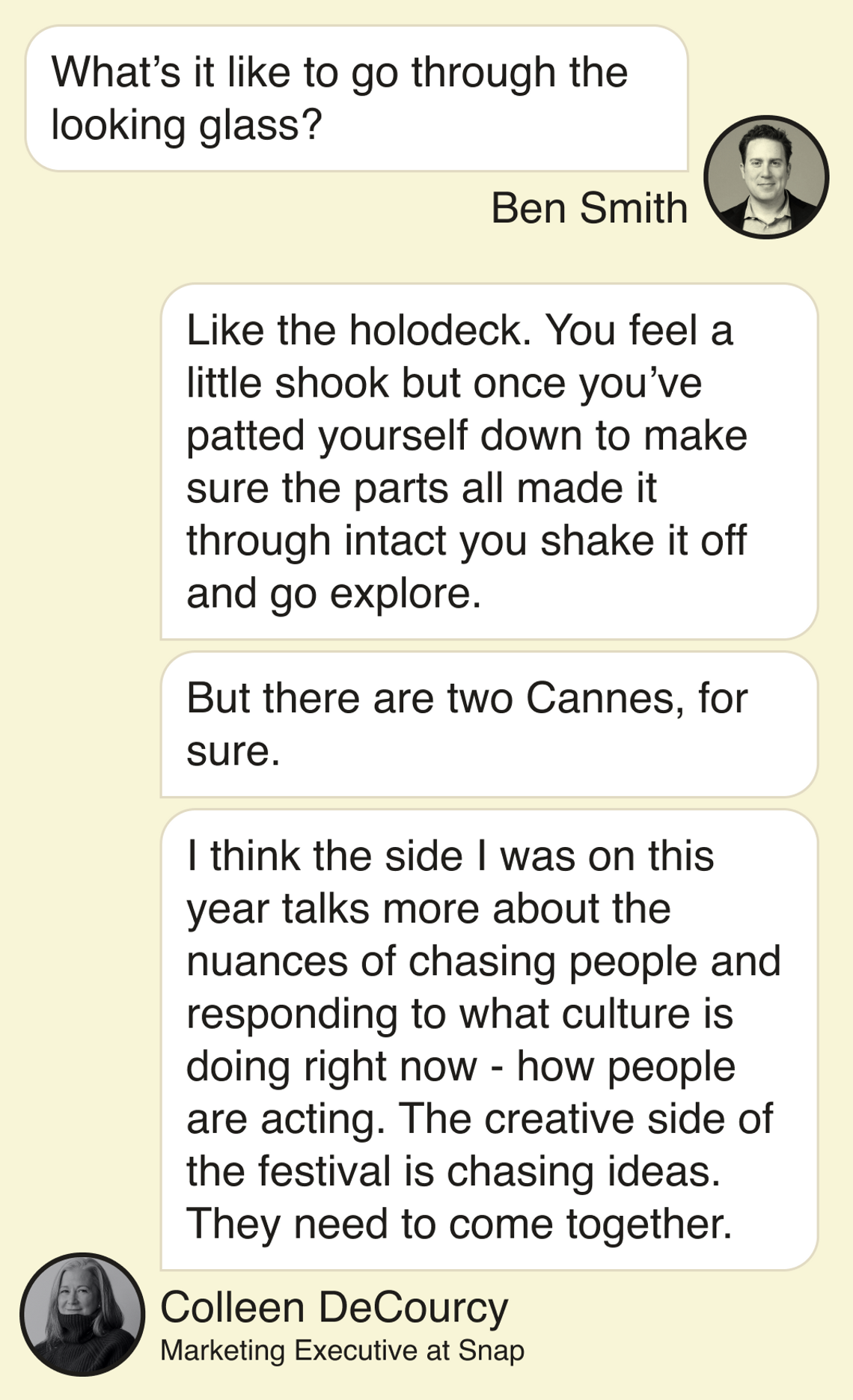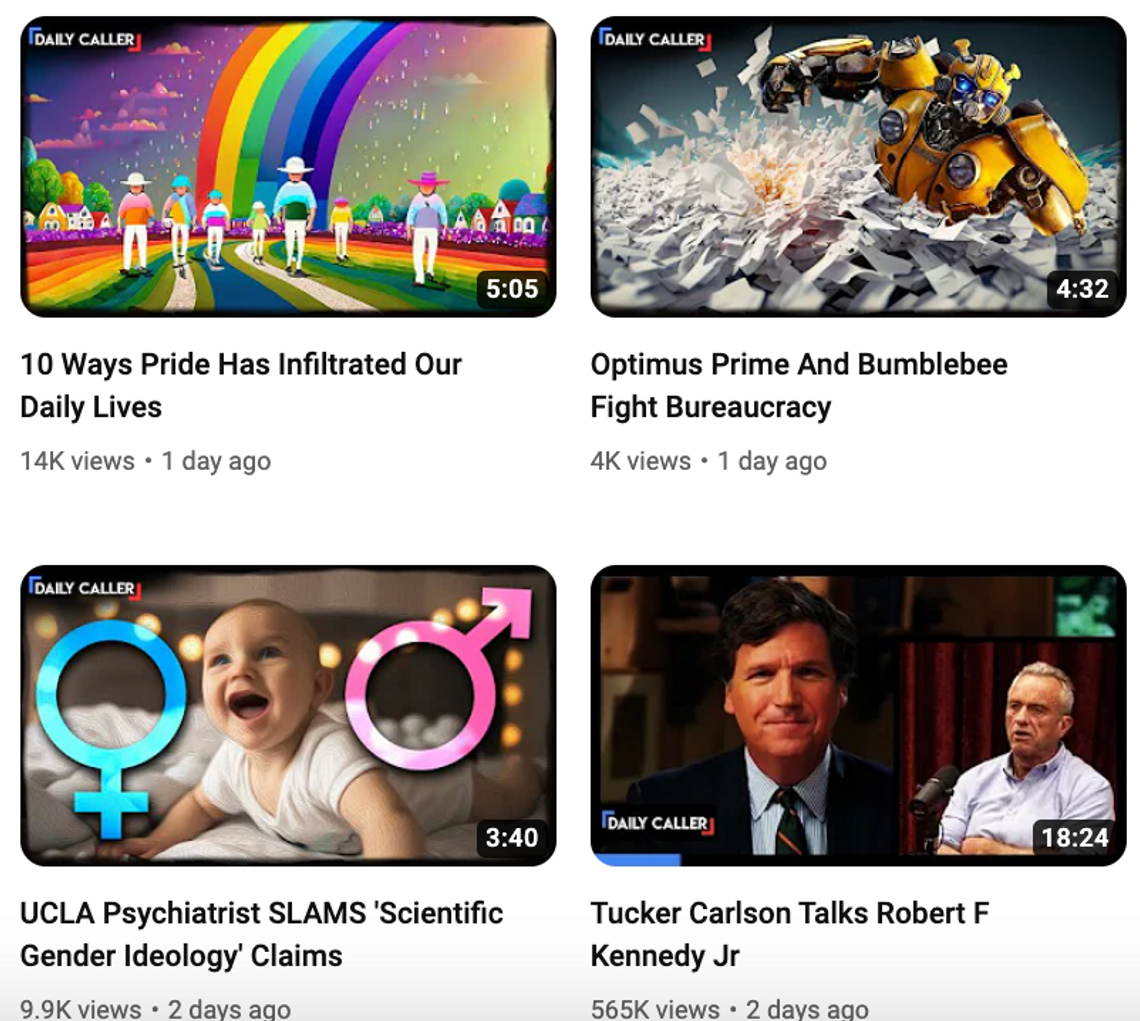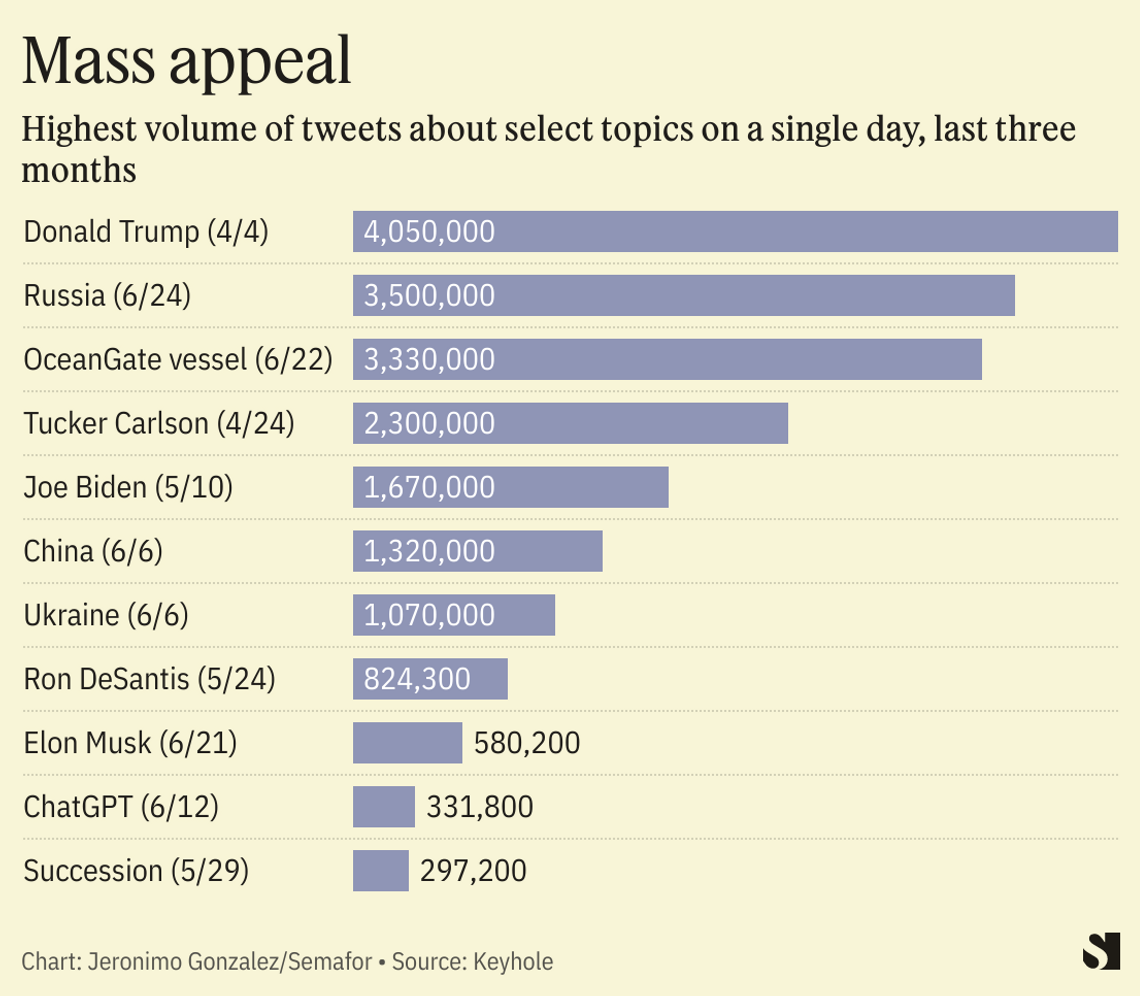 Samir Hussein/WireImage Samir Hussein/WireImageTHE NEWS CANNES — In 2020, Spotify’s stock spiked on the news that Meghan Markle and Prince Harry signed an exclusive deal with the streaming platform. But when the deal fizzled last week, the leader of one of the biggest global talent agencies, whose business is increasingly focused on audio, said he wasn’t surprised. “Turns out Megan Markle was not a great audio talent, or necessarily any kind of talent,” United Talent Agency CEO Jeremy Zimmer said over coffee at La Majestic during the Cannes Lions advertising festival. “And, you know, just because you’re famous doesn’t make you great at something.” MAX’S VIEW Zimmer’s comments reflect the new conventional wisdom in podcasting. Out are A-list celebrities and big-budget audio narratives. The new audio talent is endemic to the medium, and has more in common with talk radio or daytime television personalities than with Windsors. Among the stars at Cannes were podcasters like Alex Cooper (Spotify), Jameela Jamil (SiriusXM), and Jay Shetty (iHeartMedia). Over the course of two days, the three podcast hosts collectively appeared at 10 events in front of advertisers, discussing wellness, empowerment, and how they’ve cultivated engaged audiences through content that is safe for advertisers. They were also the subject of attention from the industry’s top figures: Michael Kassan, the wildly connected head of Medialink, was late to a meeting with Semafor because he was meeting with Cooper, and a top executive at the media company Candle broke away from a reporter mid-sentence to chase her. Zimmer dined at Cannes with the true crime podcaster Ashley Flowers. KNOW MORE Spotify has made the most dramatic moves in the space, seeking to displace Apple as the default podcast app and to buy inventory that doesn’t depend on powerful music labels. In 2020 alone, the Swedish public company signed the royals, the Obamas, Joe Rogan, and Kim Kardashian. This year Spotify cut deeply at the narrative company Gimlet, and will save a reported $20 million over several years on the royals. The platform’s major announcement at last week’s festival was a new weekly podcast with Trevor Noah which will not be windowed — keeping it only on Spotify for a limited period of time — or exclusive, a sign that Spotify is still reliant on the ad dollars and audiences available on the other platforms. Spotify’s cutbacks and shifting strategy have provided an opening for some of its competitors to attempt to regain ground ceded by the Swedish audio giant. SiriusXM remains the biggest podcast publisher in the industry. Despite its own staff reductions earlier this year, the satellite company was in Cannes to explain to advertisers a major relaunch coming this fall, which will better elevate and distinguish the individual parts within Sirius including the podcast platform Stitcher. iHeartMedia, the radio giant formerly known as Clear Channel, has attempted to turn its greatest challenge — the slow decline of terrestrial radio — into an advantage. It has leveraged its large radio reach to bolster its podcasts, relentlessly running promotions for the company’s podcasts on the radio. iHeart has also flipped the script, deploying its podcasts on traditional radio. Some radio stations the company considered shuttering have instead been reprogrammed with more contemporary content: True crime shows. Audio insiders have also credited CEO Bob Pittman with keeping costs low and ensuring that shows are paid for with ads before the company announces them publicly. In an interview earlier this month, iHeart podcast head Conal Byrne said that recent events at other audio companies had vindicated iHeart’s strategy of prioritizing long-term shows with proven hosts over flash. “We have seen others who’ve tried different business models, either exclusively windowing content on one app only or doing sort of quick-turn sales rep deals with large creators to attempt to buy their way into the industry as opposed to building long-term great slates with creators across several years,” he said. “I’ve seen several now start to pivot off of strategies like that. It doesn’t totally surprise me because those strategies were probably destined to not work from day one. It never made sense to us.” To see Room For Disagreement and more, read here. | 







